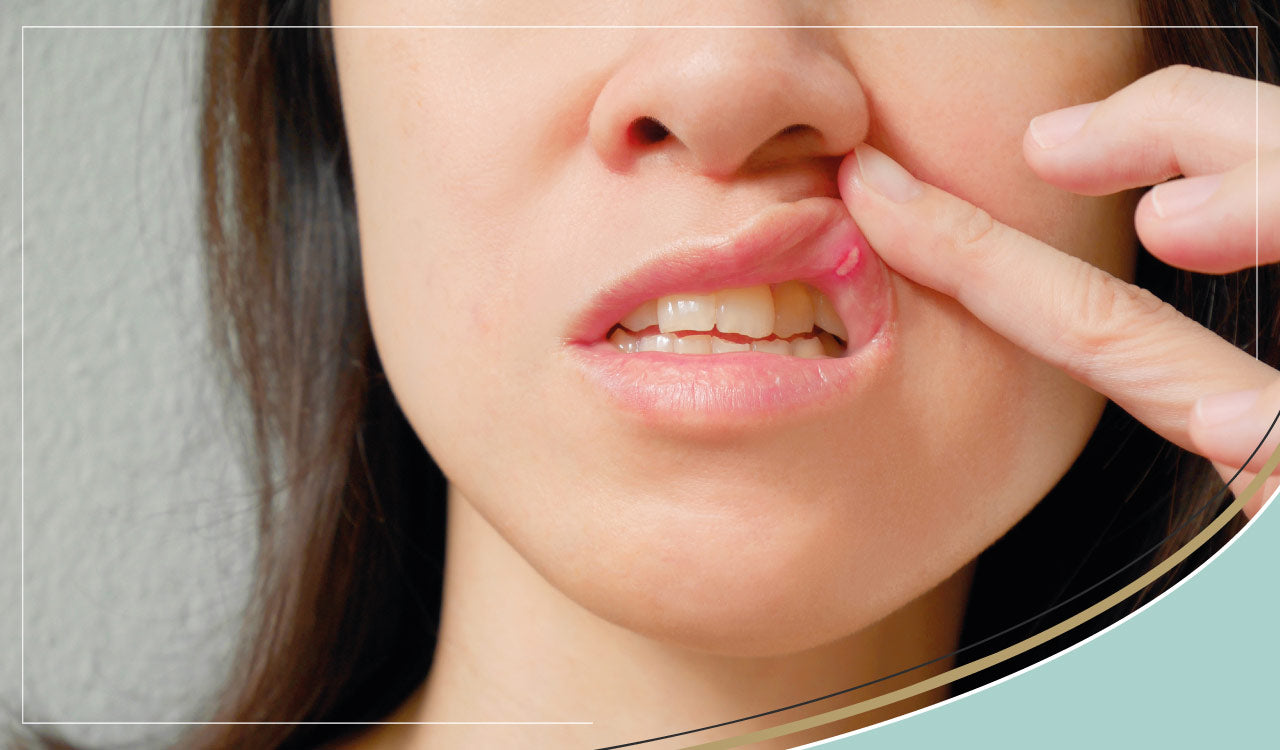Mouth ulcers causes & prevention

What are mouth ulcers?
Mouth ulcers are oval or round inflamed sores that form in the mouth. They are usually found on the inside of the cheeks, lips or on the edge of the tongue. They can be red, white, grey or yellow in colour, usually with a red outer edge. Some ulcers are only mildly painful where they are almost unnoticeable and easily ignored. Others are extremely painful, causing constant throbbing and difficulties with speaking, eating and processing the saliva in the mouth.
What causes mouth ulcers?
Many factors have been linked to the development of mouth ulcers, and different people report different triggers. Some of the most common triggers are:
- Damage to the tissues in the mouth lining caused by:
- Dentures rubbing
- Abrasion with a toothbrush or a sharp/misaligned tooth
- Accidental biting of the cheek
- Burns from hot food
- Irritation from a strong mouthwash
- A vitamin deficiency such as a lack of iron, vitamin C, B12 or folic acid
- Dry mouth caused by:
- Dry Mouth Syndrome
- Autoimmune diseases such as Sjogren’ syndrome/aphthous stomatitis
- Dehydration
- Medication such as antidepressants, antihistamines and diuretics
- Fungal infection of the mouth such as candidiasis (oral thrush)
- Radiation Treatment/Chemotherapy
- Diabetes
- Anti-inflammatory painkillers and beta-blockers
- Gastrointestinal tract conditions such as ulcerative colitis, Crohn’s, coeliac disease
- Infections such as streptococcus, herpesviruses simplex, lichen planus, shingles, syphilis or tuberculosis
- Smoking
- Toothpaste containing Sodium Lauryl Sulphate (SLS)
Mouth Ulcer Prevention
- Swap your toothpaste for one that does not contain the ingredient sodium lauryl sulphate.
- Make sure you are eating well 80% of the time.
- If you feel your diet is lacking in folic acid, vitamin B12, iron or vitamin C, you might consider taking supplements, but it is always better to try and achieve this first through changes in diet. Vitamin C and B12 are necessary to the absorption of iron if you are lack in this, for example, if you are suffering from anaemia.
- Eliminate any foods that you feel may make you more prone to ulcers such as spicy foods, acidic foods or anything that is abrasive to the mouth tissues - e.g. crusty bread.
- Maintain good oral hygiene and denture care - change your toothbrush monthly, choose a toothbrush that is not too abrasive to the gums, and brush your teeth twice a day. Brush dentures twice a day and soak in denture cleaning tablets (preferably tablets free of persulfates).
- Consider using a supplement such as Xylotene as a daily mouthwash and / or apply directly to mouth ulcers as required.
- Seek medical attention if you are struggling to drink fluids, you have had an ulcer for more than three weeks, if an ulcer is large and extremely painful, or if you are suffering from a fever and have ulcers.
- Stop smoking if you can (initially after quitting you may temporarily have a few more ulcers than usual)
- Try to limit stressful situations and to sleep enough so that your body does not become run-down.
 Free Shipping on orders $70+ USD
Free Shipping on orders $70+ USD
 Courier & USPS Deliveries Available
Courier & USPS Deliveries Available
 Read Thousands of Independent Reviews
Read Thousands of Independent Reviews


















